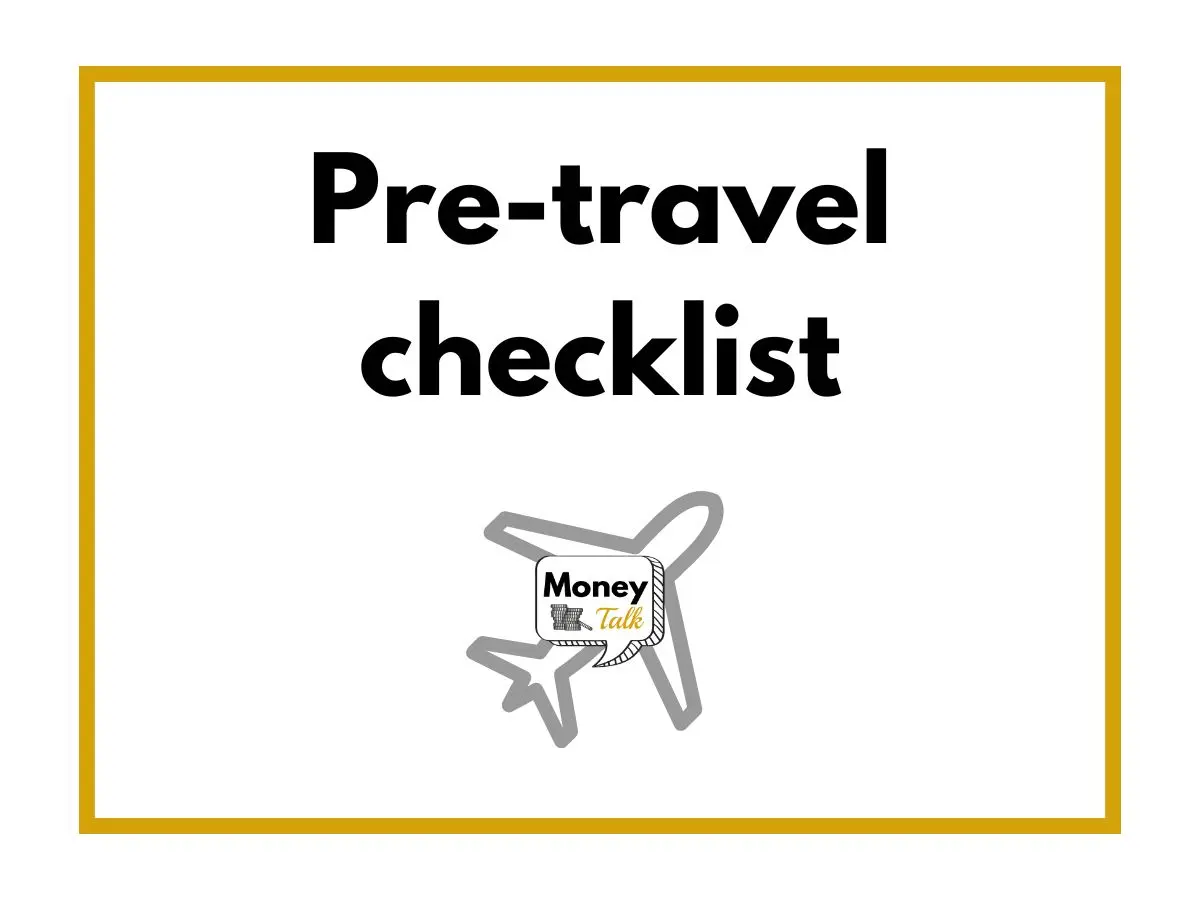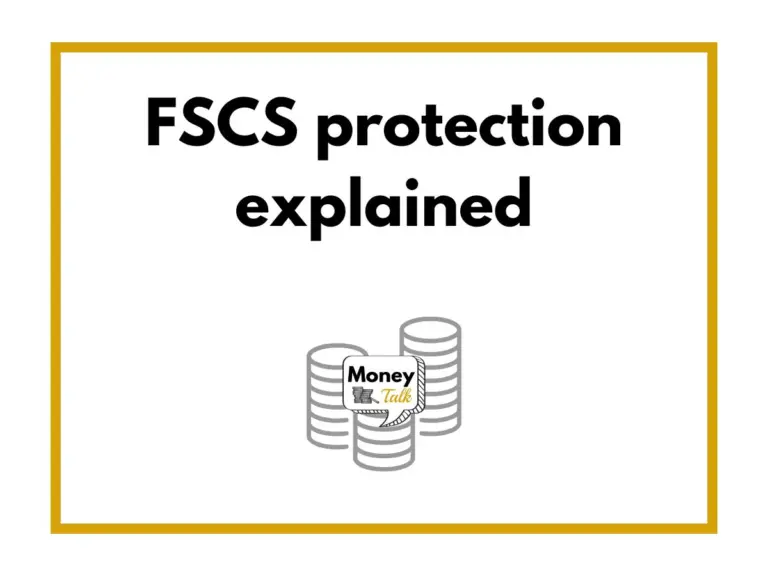Ultimate pre-travel checklist: from insurance to travel money
Money Talk is intended to inform and educate; it's not financial advice. Affiliate links, including from Amazon, are used to help fund the site. If you make a purchase via a link marked with an *, Money Talk might receive a commission at no cost to you. Find out more here.
Fraudulent websites, fake accommodation listings, and misleading offers – holiday scams like these cost Brits more than £11 million in 2024.
But scams aren’t the only things that could mar your travel plans.
You might also have to contend with delays and cancellations, missing luggage and, increasingly, wild and unexpected weather on the ground.
Suffice to say, it’s worth being prepared.
With that in mind, here’s a foolproof pre-travel checklist that will help your holiday plans go smoothly.
Check travel restrictions and requirements
Whether you’re going somewhere new or revisiting an old haunt, it’s worth brushing up on the entry requirements and restrictions for your destination before you even book.
A big one is of course visa requirements – if you need to get a visa, you’ll need to allow plenty of time to apply, and often before you book any travel arrangements.
Even if you don’t need a visa, you may still need to apply and pay for a visa waiver before you travel.
There are some obvious destinations that require a visa waiver, including the USA (ESTA) and Canada (ETA). From 2026 this will also apply to many countries in Europe when the ETIAS is finally rolled out.
If you’re planning a longer break, double check how long you can stay in a destination without a visa. This changes surprisingly frequently and might drastically shorten the length of your trip.
And then of course there’s your passport validity, the requirement for which differs depending on where you’re travelling to.
The UK Foreign Office has traditionally been the best source of information for Brits, and you can sign up for email alerts for the country you’re travelling to.
However, bear in mind that it isn’t always great at keeping up with breaking news.
Because of that, I’d always suggest checking the government website for the destination you’re going to as well. This could be the health department, the embassy or the tourist board.
The one last thing to check is tourism tax requirements.
An increasing number of destinations are now charging these and sometimes you have to pay them before you get to the destination.
Venice’s day tripper tax, for example, is cheaper if you pre-book. And on busy days it can sell out.
Consider a package holiday
If you already have a destination in mind, consider booking a package holiday, where your travel and accommodation are booked together as part of a package.
It can be a train, bus, ferry or flight plus accommodation in this case, and also include extras like tours and activities.
Legally, these types of holidays must be financially protected in the UK – unlike when you book your hotel and flights separately – and are generally done so through either ABTA (no-fly breaks) or ATOL (flight-inclusive trips).
This gives you certain rights when things go wrong.
For example, if the package holiday organiser cancels your holiday, you would be due a refund within 14 days.
Similarly, if the holiday firm goes bust before you travel, you should get your money back if nothing has been booked. Or if your holiday has already been booked, you should get to go on your holiday as normal.
If your travel firm isn’t complying with their legal obligations, you can report them to the Competition and Markets Authority or one of the industry regulators.
But beware: travel firms are legally allowed to apply a holiday surcharge if the cost of providing your holiday has gone up significantly due to things like fuel costs, taxes and exchange rate fluctuations.
This means they can ask you for more money after you’ve already paid in full, although they can’t apply the surcharge within 20 days of travel.
They’re only allowed to ask for a maximum of an extra 8% of the total cost of your holiday though. If the surcharge is any higher than this, they must offer you the option of cancelling and getting your money back.
Theoretically they must also refund you the difference if their costs go down significantly, although I’ve yet to hear of that actually happening…
Go with a reputable travel company
If you’re planning to book your holiday with a company you’ve never heard of, double check they’re legit.
Years ago there were dodgy holiday firms that pretended to hold ABTA or ATOL certificates, and would even use the numbers from legitimate companies.
In some cases they were scams, and in others it just meant that your holiday wasn’t actually financially protected.
So for extra peace of mind, always check if their ABTA or ATOL numbers actually correspond to the right company.
It’s also worth looking up reviews, checking their company registration (including address and phone numbers), as well as membership to any other industry organisations.
And just in case, make sure you know what to do if you fall victim to a scam.
Look for flexibility
Many travel firms now offer flexible booking policies.
It means you can switch or cancel your trip without losing your deposit.
Keep in mind though that there’s always a cut off for when you can do so without a penalty – it’s usually 30 days but can sometimes be less.
They’ll also generally keep your deposit for a future trip, and in some cases you may have to pay for services already booked in your name, such as a permit to enter a national park.
Still, if you think your plans might change at the last minute it’s worth paying a bit more for the peace of mind.
Read the small print
It’s always worth taking the extra time to read the small print when you book.
It’ll detail things like whether you can switch to another destination if travel restrictions change, or how to get your money back.
This also applies if you’re booking your flights and accommodation separately.
If there’s a dispute, you may need to fall back on the T&Cs so it can be worth taking a screenshot of it at the time of booking.
Pay with a credit card
Using your credit card to pay for your holiday can offer you an extra level of financial protection.
This is thanks to Section 75 of the Consumer Credit Act, which makes the credit card provider and the seller jointly liable when things go wrong.
Although you should still go to your travel provider to start with, if they’ve gone bust or if they’re simply ignoring you, you can go to your credit card provider as an alternative.
Basically they give you more options for getting your money back.
And if you have a reward or cashback credit card, you’ll obviously benefit from the reward as well.
But if you’re using your card with a travel firm that applies the charges in another currency – like Booking.com* does with hotels in other countries – make sure your credit card doesn’t charge a fee for this as otherwise it could cost you more than you expect.
A good solution is to use a travel credit card that doesn’t charge a commission or fee on currency exchanges.
Buy travel insurance
Travel insurance is always advisable for covering the unexpected, whether it’s a flight cancellation or delayed luggage.
But some countries will explicitly ask holidaymakers to have travel insurance before they’re allowed in.
Make sure the cover you take out matches your requirements, including any pre-existing medical conditions, and make sure you’ve read the small print.
If you are cruising or going on sporting holidays such as skiing, you’ll need additional or specialist cover. You’ll also probably want to take out extra cover if you plan to travel with expensive gadgets such as cameras and laptops.
As for when to take out travel insurance, the answer is as soon as you’ve booked your holiday.
This way you’re covered not just for when things go wrong while you’re away but also if you need to cancel your trip before travel.
Read this: How to choose the right travel insurance
Book vaccine appointments
Going somewhere exotic? You might need to get vaccinated before you travel.
This is often a forgotten aspect of travel but is essential on any decent pre-travel checklist.
Vaccines are for your own health of course, but they can also sometimes be a requirement of the destination you’re travelling to.
You should do this a few weeks before you travel as some vaccines take several weeks to take effect and of course you’ll need to schedule in the appointment.
Check the TravelHealthPro or NHS Fit for Travel websites for the vaccine requirements of countries around the world.
Note that while some vaccines are free on the NHS, such as typhoid and cholera, others such as rabies and yellow fever will incur a fee.
Get foreign currency
Depending on where you’re travelling to, you may need to have cash on hand to pay for things.
If you’re in Vietnam or Thailand for example, you’ll find it impossible to get by with just a card.
Even in Europe, cash is king in cities like Berlin.
If you have a travel-friendly debit card that gives you fee-free cash withdrawals abroad then taking out money from an ATM after you land will give you the best value exchange rate.
Otherwise do shop around before you buy while in the UK. Bear in mind that you’ll get better rates if you exchange bigger sums (around £500) and do it at least a week before travel for deliveries.
Know your rights
Last but not least, you should know your rights.
Familiarise yourself with these before you travel so you can collect any evidence if needed for any compensation claims after you return.
For example, if your flight from the UK was delayed, you could be entitled to up to £520 in compensation – but only if the delay was the airline’s fault.
The amount you get will also depend on how long you were held up and how far you were travelling.
There are similar rules around compensation for cancelled flights.
But even if you’re not entitled to compensation, you may be entitled to claim certain expenses so it’s worth knowing what you can and can’t claim and keep any receipts.
Pin this for later








